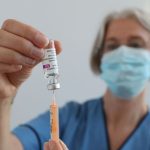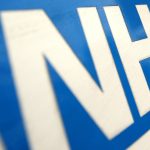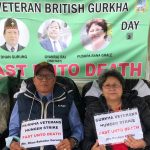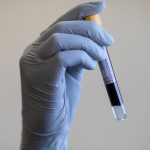Domestic abuse and sexual assault victims are being encouraged to seek NHS support after the number of people asking for help halved during the first lockdown.
Some 1,250 people sought help from NHS Sexual Assault Referral clinics in July last year, compared with 2,500 during the same month in 2019.
The numbers have increased since then but are still below those seen before the coronavirus pandemic, according to NHS England.
Please use Chrome browser for a more accessible video player
But at the same time, there has been a 350% increase in the number of people searching online for domestic abuse support during lockdown compared to the previous year.
There was also a 54% increase in the use of support lines and a 70% increase in web chat activity over the same period.
Women have been sharing their experiences of assault and harassment online since the death of 33-year-old Sarah Everard.
There has also been criticism of the way some police officers have dealt with complaints from women.
Kate Davies, the NHS director of sexual assault services commissioning, said: “This is a key moment in time in the fight against domestic abuse and sexual assault, and NHS England is playing its part in helping victims get the help they deserve.”
Please use Chrome browser for a more accessible video player
People do not need to report a crime to police to refer themselves to the clinics, which are run by doctors and nurses.
The services offered by the clinics to rape and assault victims include:
Claire Murdoch, NHS England’s national director for mental health, said: “Everyone is different and needs different types of support, but please remember that the NHS is here to listen to you and support you.”
The NHS has written to staff reminding them of how to spot signs a patient may have been abused or assaulted.
Please use Chrome browser for a more accessible video player
Sara Hurley, the NHS England chief dental officer, has published guidance for dentists on how their teams – who are “likely to meet patients with broken teeth and injuries to their mouths” – can also identify and help victims.
Ms Hurley said: “Combating domestic abuse is not just a medical mission, it’s a moral mission too and dentists are determined to play their part.”
The NHS has said as well as physical violence, domestic abuse covers coercive control and gaslighting, emotional abuse, economic abuse, online abuse, and threats and intimidation.
Victims can access help via the NHS website or by calling The Survivors Trust National Helpline on 08088 010 818.






















